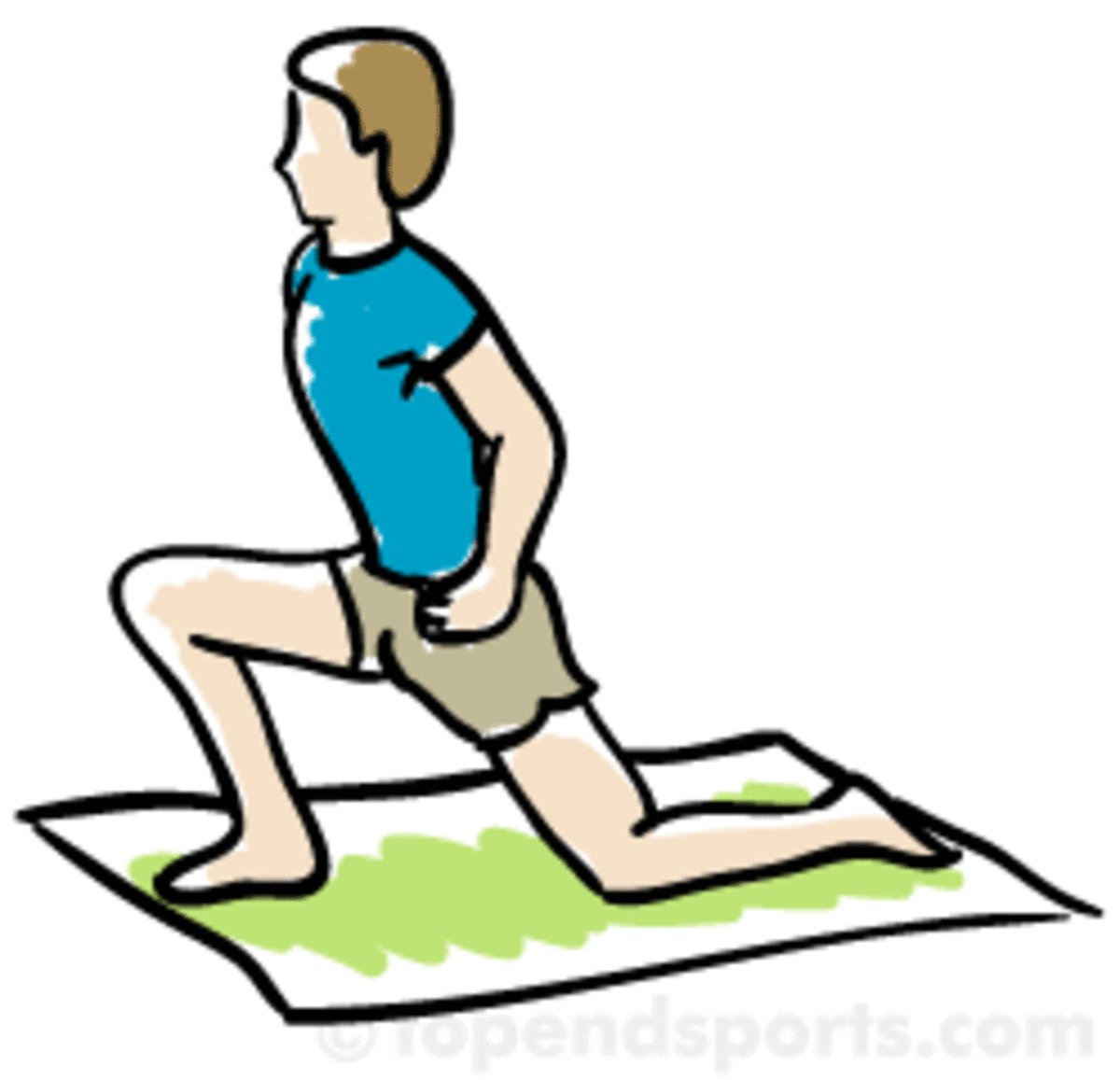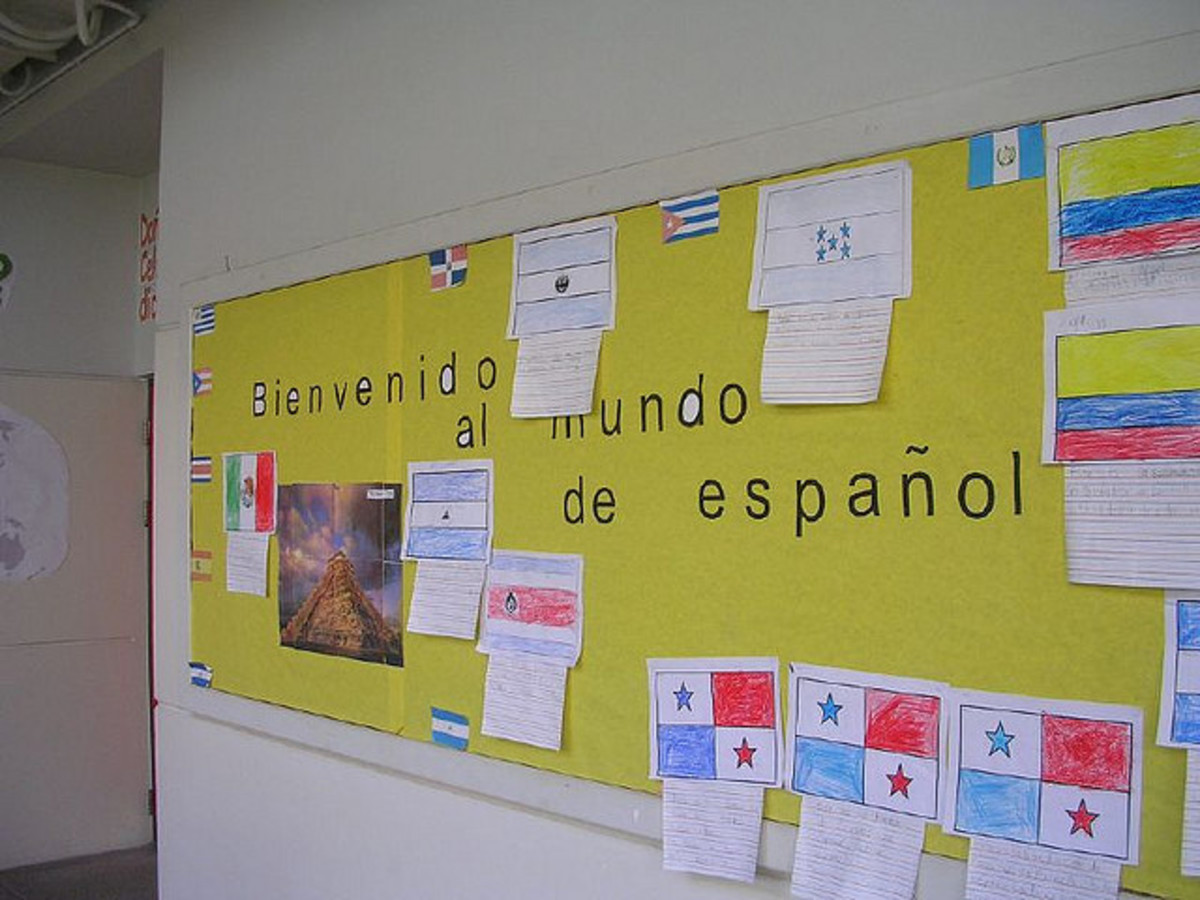Spanish Lesson Sixteen: Possessive Pronouns

My weeks continue to get better and better! I can't believe Sunday has made here so quickly. It's time goes by faster when you're having fun.I hope everyone has enjoyed their week. :) This week we're on Lesson Sixteen. These lessons are designed for you to be able to go at your own pace and learn Spanish "A Little At A Time". You can learn as fast or slow as you'd like without feeling dumb or pressured to show off. For those of you stumbling upon this for the first time, welcome. For those of you returning, Welcome back. I recommend that everyone go back to previous lessons and review them occasionally to help the information penetrate successfully. The link to those lessons is provided below, after the explanation of this week's lesson
Last week we discussed Saying What You Want To Do. If you'd like to review that lesson before going on click--->here. In today's lesson we will be discussing Showing Possession. You'll be able to say what's mine, his, hers, ours, theirs... that's useful right?

Today's Vocabulary
Today's Vocabulary consists of Possessive Pronouns that pertain to this lesson. They will be listed as best as possible with a chart to follow and then today's lesson to explain the usage of these Possessive Pronouns. I can't wait for you see what I have in store for you!
Also to the right will be a list of random objects to play with some sentences. Check out that portion of the list as well. :)
Spanish Nouns
Computer: La Computadora
Table: La Mesa
Clock: El Reloj
Door: La Puerta
Book: El Libro
Chair: La Silla
Video Game: El videojuego
Apartment: El Apartamento
Friend: Amigo
Boyfriend/Girlfriend: Novio/Novia
Grandma: La Abuela
Lamp: La Lámpara
Possessive Pronouns
My (singular)/My (Plural): Mi/Mis
Your (singular)/Your (Plural): Tu/Tus
His/Her/Your/Their (Singular)/His/Her/Your/Their (Plural): Su/Sus
Ours: Nuestro*
Possessive Adjectives
Mine (Masculine)/Mine (Feminine): Mío/Mía
His/Hers/Its/Theirs (Masculine)/His/Hers/Its/Theirs (Feminine): Suyo/Suya
Our (Masculine)/Our (Feminine): Nuestro/Nuestra
*Take a look at the chart below that adds on to Possessive Adjectives*

Warm-Up
Today's warm-up is pretty important. Head back to Lesson Eleven and take a second look at the Spanish Conjunctions. I really think they could be of some use to you in this lesson. Think about possession in terms of those words and what kind of things you might say with use of those conjunctions. Well, after you've done that, let's take a look at today's vocabulary and lesson.
Masculine
| Feminine
| |
|---|---|---|
Singular
| Mío
| Mía
|
Plural
| Míos
| Mías
|
Masculine
| Feminine
| |
|---|---|---|
Singular
| Tuyo
| Tuya
|
Plural
| Tuyos
| Tuyas
|
Masculine
| Feminine
| |
|---|---|---|
Singular
| Nuestro
| Nuestra
|
Plural
| Nuestros
| Nuestras
|
Possessive Adjectives and Pronouns
Looking at the charts above you can definitely tell that the Possessive Adjectives are reflexive of the gender and number of the word it modifies. The Possessive Pronouns come before the nouns and act in the way of modifiers in English. The two are distinctly different, but are both acceptable when discussing possession
Mi Libro. My book.
El Libro mío.The book (of) mine.
Those two phrases mean about the same thing, but can be expressed differently. Make sure when using Possessive Adjectives to account for gender and number just as you would do for any Spanish Adjective. That's the basic way to remember the different between Possessive Adjectives and Possessive Pronouns. The Pronouns come before the noun and the Adjectives come after the noun. Here's another practice sentence. Possessive Pronouns do not account for gender and Possessive Adjectives do.
Mis Libros. My books.
Los Libros míos. The books (of) mine.
See where I put "Los" instead of "El". Don't forget those indefinite articles that come before every noun and ensure that they also match the number. Also remember to account for gender in each of these cases. Míos would become Mías if the noun had become feminine. Use the charts above as a reminder.
Other Ways To Show Possession
If you'd like to be a bit more specific when discussing the possession of something, you must use the conjunction de to tell that something is "of" someone else's. It's rather easy actually. Take a look at these sentences and just see the common usage.
El libro de él. The book of he.-->His book.
El libro de ella. The book of she.-->Her book.
El libro de Manuel. The book of Manuel.--> Manuel's book.
El libro de ellos. The book of them.--> Their book.
*Showing possession this way is better when you want to be a bit more specific about whose thing it is. Practice all of these ways. If you'll remember, possessive pronouns are just awesome instead of saying nouns over and over. It can really wear you down. Take a look at this video to see what I'm talking about!

Homework
Your homework for today is to view a video based off of Lesson Thirteen. This video will help you recap the formula Ir + A + Inf. Senorbelles is my favorite Spanish teacher online and he has a great deal of clarity when discussing a certain topic. Listen closely to his tips.
Also in the coming lessons we'll be discussing a great deal more about grammar and visiting other themed topics in Spanish. Stick around for that. :) Here are some lessons that will be coming soon:
- What Should You Do?
- What Do You Want To Be When You Grow Up?
- What Do You Like And Dislike?
- What Are You Doing?
Next week we will be discussing What Are You Doing in Spanish. This one will be a little hard, keep that in mind.
Additional Note: Lesson Twenty will introduce the past tense in Spanish called the preterit. Also Your second quiz will be posted as well. It's open note, just a refresher, so stop by for that!!
Links Used As A Reference
- Spanish Short-Form Possessive Determiners of Spanish — Spanish Grammar
Lesson on the use of Spanish possessive adjectives, also called determiners. These are the equivalent of word such as 'his,' 'her' and 'my.' - Long-Form Possessive Adjectives in Spanish — Spanish Grammar
Unlike English, Spanish has two forms of possessive adjectives, a short form that is used before nouns, and a long form that is used after nouns. This lesson explains the long form. - Schoolhouse Rock Rufus Xavier Sarsaparilla (Pronouns) - YouTube
70's Saturday morning cartoon for kid's education








